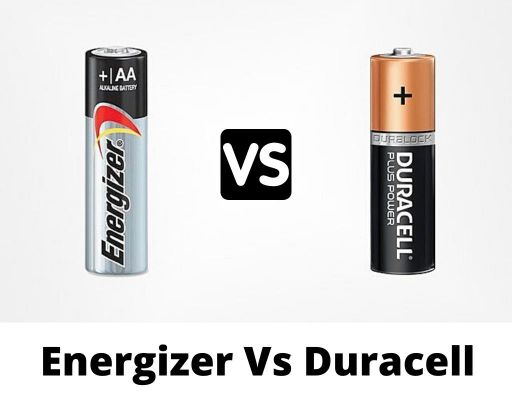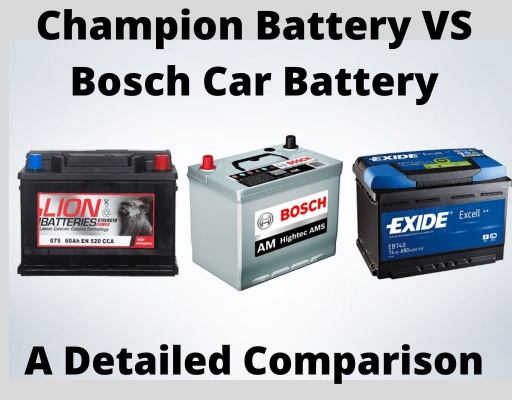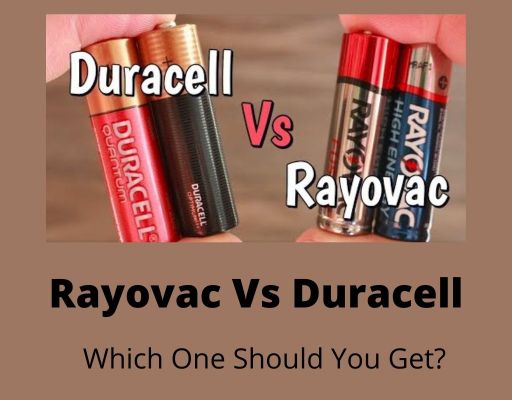When choosing the correct battery for your power tools, RVs’, or solar panels, there are a few things you need to consider: voltage, charging cycle, and capacity, all matter. Now the question is, do you want a deep cycle battery or a lithium-ion battery?
The most notable difference between Deep Cycle and Lithium-Ion batteries is Lithium battery capacity doesn’t rely on discharge like the lead acid deep cycle batteries. Besides, lithium batteries have 10-times more cycle life than lead acid batteries. So Lithium battery needs less replacement.
Each type of battery has advantages and disadvantages, so choosing the one that best suits your needs is essential.
This blog will explore the differences between deep cycle and lithium-ion batteries and help you decide which type is best for you.
Stay tuned!
Deep Cycle vs Lithium-Ion Battery: Quick Overview
| Factors | Deep Cycle (Lead Acid) | Lithium-Ion |
| Capacity | Inversely proportionate to discharge | Independent of discharge |
| Power Supply | Reduces with time | Steady |
| Discharge Efficiency | 50% | 80-90% |
| Cycle Life | Up to 200 | 10-times higher than Deep Cycle |
| Charging Duration | 8-16 hours | 2-3 hours |
| Charging Performance | Low current charging at low-temperature | No charging at low-temperature |
| Weight | Heavier | 55% lighter |
| Storage | 100% charged required | Don’t need to be 100% charged |
| Installation | Can’t be installed at an invert position | Can be installed at any position |
| Energy density(Wh /L) | 80-100 | 250-693 |
| Temperature sensitivity | Can’t tolerate 25℃ + temperature | Can work at 55℃ temperature. |
Deep Cycle Battery Vs Lithium-Ion: Detailed Comparison
When choosing a battery for regular use, there are a few different types to choose from.
One of the most popular types is the deep cycle battery. This battery is designed to provide power over an extended period, making it perfect for use, especially in RVs.
Another type of battery that is becoming more popular is the lithium-ion battery. This type of battery is smaller and lighter than a deep cycle battery, making it a good choice for those who want a lightweight option.
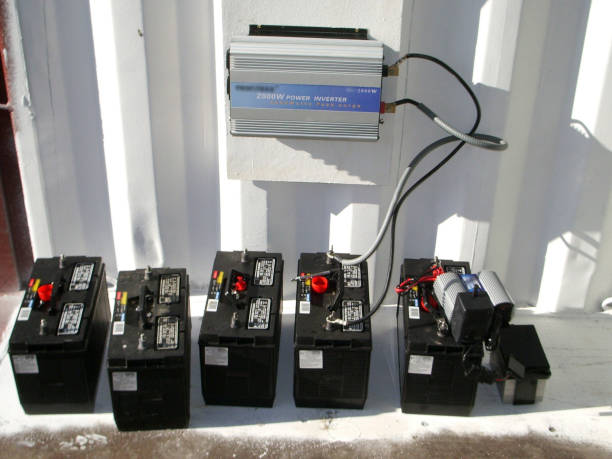
Energy Density and Weight
Lithium batteries have a much higher energy density than lead-acid. This means they can hold more power for the same size and weight of the container, which is great when you’re limited on space!
It also helps that these types are lighter, so fewer will be needed to store your electricity needs during transport.
Lead-acid batteries are bulky and heavy. Their size makes them inefficient for mobile applications.
The low energy density means that they would take up too much space or weight if you wanted to store enough power in your house’s battery system alone!
Constant Power Delivery
Lithium-ion batteries provide a continuous power supply throughout their discharge cycle. No matter how much charge the battery retains, it delivers the maximum power at any time.
However, lead-acid deep cycle batteries starts with a burst of energy but eventually wane out. The power supply directly proportionates to the remaining charge.
Charging Time
A deep cycle lead-acid battery will take much longer to charge than a lithium-ion battery. A lithium-ion battery can typically be charged to 80% in about an hour, while a deep cycle lead acid battery may only reach 50% simultaneously.
This is because of how the deep cycle lead-acid battery charges, which causes the voltage to drop as it approaches full capacity.
The charging characteristics of a lithium-ion battery are not nearly as critical because you can always stop and start the charge whenever needed with no impact on performance or lifespan.
This makes them better for applications that require short bursts, such as solar energy collection, regenerative braking from vehicles, etc.
Peukert Effect
Lead-acid batteries are not as reliable regarding high loads. The Peukert effect causes them to lose energy before voltage drops. It means you don’t get all the power from your battery even if charging at lower rates for longer periods than what is recommended by manufacturer guidelines!
Gassing can happen too–that’s where they release hydrogen gas and other gasses like oxygen or sulfates into an enclosed space, causing a dangerous atmosphere inside, so do whatever is necessary just to stay safe.
In addition, overcharging will lead to balls up in flames due to their chemical composition, making explosion likely
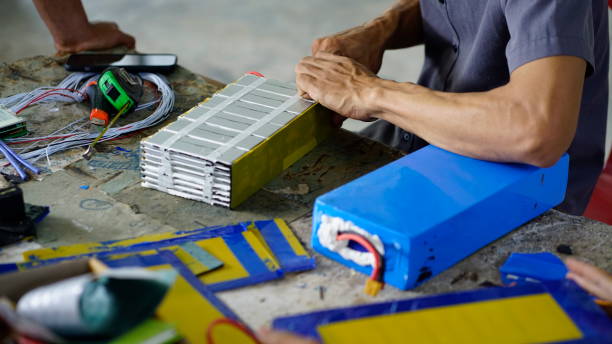
Cycle Life
Lead acid batteries are better able to sustain deep discharges than their lithium-ion counterparts. For example, if you discharge your lead battery down 50% routinely, it will likely give 500 – 800 cycles before needing replacement.
In contrast, with a LiIon used for normal purposes (20%), this number jumps exponentially, reaching 5000 operating periods!
The extended lifespan of the Lithium-ion option is significant as well, making them more cost-effective over time despite their initial expense in comparison.
Usages
The deep cycle battery is used for those applications that prefer a sustained level of power for an extended period than a short burst of energy while starting. It is commonly used in
- Cathodic protection in marine uses
- For working as a power generator in small boats and water vessels.
- Used for forklifts and floor sweepers in industrial uses.
- Off-grid power storage for solar and wind power in small installations
- For traffic lights
- Recreational vehicles
- Uninterrupted Power Supply for computers and their associated equipment
Because of their lightweight nature, lithium-ion batteries have a variety of uses, irrespective of size. These include:
- Use of lithium-ion battery in portable devices like mobile phones, game consoles, laptops, smartphones, torches, etc.
- It can be used in electric power tools
- Lithium-ion is more suitable for electric vehicles.
Lead Acid vs. Lithium-Ion Batteries: Which is the Best for you?
Lithium-ion batteries are a welcome addition to the world of energy storage for RVers looking to power their amenities while on the go.
These new types can do everything from cooking meals and keeping food cold! But what about those who want more than just basic functionality? If you’re an RVer with multiple devices or appliances in your rig that needs constant power – such as TVs/stereo systems hooked up via USB ports–lead acid is going to be right up your alley.
They offer longer runs per pound (lbs) than lithium-ion does, meaning less range anxiety when traveling cross country.
Some Recommended Deep Cycle Batteries
ODYSSEY 31-PC2150S Heavy Duty Commercial Battery
This battery has 1150 CCA with a 4-year full replacement warranty. It is suitable for extreme temperatures and offers fast recharging. With up to 400 cycles to as low as 80 percent discharge, it comes with a 70% longer life than conventional deep cycle batteries
Vmaxtanks MR107-85 12V 85AH Marine AGM SLA
This battery comes with an electrolyte suspension system and heavy-duty plates. As an AGM battery, these are resistant to shocks and vibrations and maintenance-free. The charge lasts 10 hours with 50-60% depth of discharge.
Some Recommended Lithium-Ion Batteries
Makita BL1850B-10 18V LXT Lithium-Ion 5.0Ah Battery
This battery delivers consistent run time in severe temperatures. The Integrated L.E.D. Battery charge level indicator is there to monitor battery charge. It gets to full charge in 45 minutes or less and provides up to 65% more run time per charge.
Antigravity Batteries AG-1201 Lithium-Ion Powersports Battery
This battery offers faster motor turnover and better starting with 12.8v power and 360 Cranking Amps. This lightweight battery is high-quality and easy to handle.
Conclusion
Did you go through the ultimate battle of deep cycle battery vs lithium-ion battery? We have tried to mention everything you need to know about the two batteries and their descriptive comparison.
Both the batteries are equally significant in their perspective. However, only the user can choose which will they prefer better, the lithium-ion battery or the deep cycle battery.
